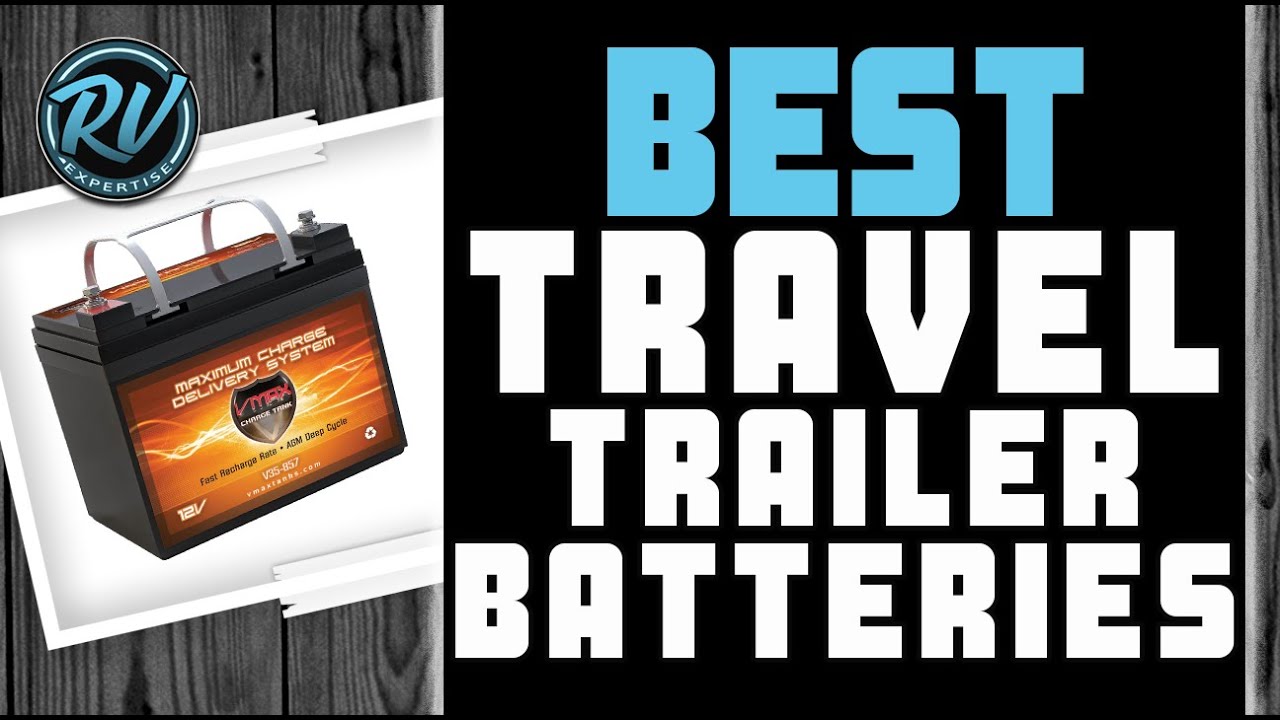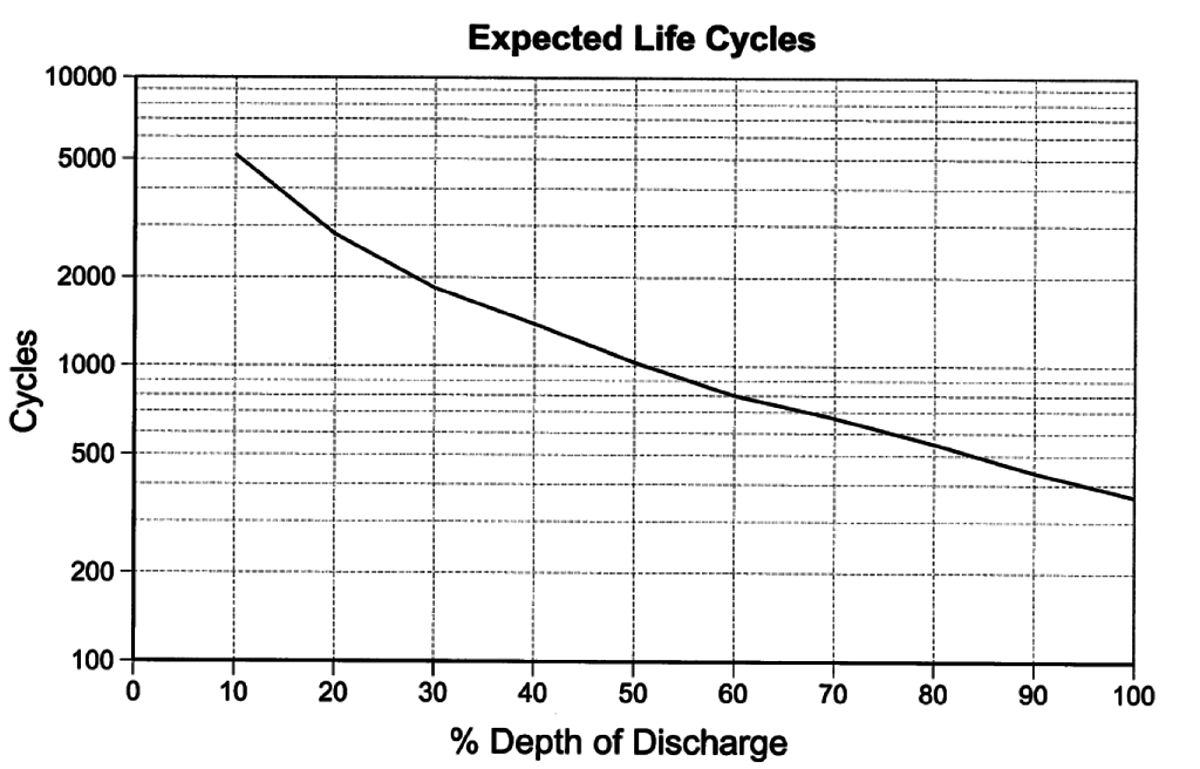The Best Travel Trailer Battery For Boondocking: A Guide To Powering Your Off-grid Adventures

Imagine waking up in a breathtaking remote location, only to find your travel trailer’s battery is depleted, leaving you without power for your essential appliances and comforts. Boondocking, the freedom of exploring the great outdoors without hookups, requires a reliable power source to ensure an enjoyable and seamless off-grid experience. Choosing the right battery is crucial for a successful boondocking adventure, and this guide will help you determine the best travel trailer battery for your needs and budget. Whether you’re a weekend warrior or a full-time RVer, understanding the different battery types and their pros and cons is essential for making an informed decision.
Why You Need the Best Travel Trailer Battery for Boondocking
When it comes to powering your travel trailer, a deep-cycle battery is an essential component. Unlike car batteries, which are designed to provide a quick burst of energy for starting an engine, deep-cycle batteries are built to deliver sustained power for your RV’s various appliances and systems.
Understanding Deep-Cycle Batteries
Deep-cycle batteries feature thicker lead plates and a different electrolyte composition, allowing them to handle repeated discharge and recharge cycles without compromising performance. This design is crucial for the continuous power demands of boondocking, where you may need to rely on your battery for extended periods without access to shore power.
Powering Your RV’s Essentials
A reliable deep-cycle battery is the backbone of your travel trailer’s power system, keeping everything from lights and refrigerators to water pumps and entertainment systems running smoothly. With a dependable battery, you can venture off the beaten path, enjoying the freedom and self-sufficiency that comes with boondocking and the ability to explore remote areas without relying solely on shore power.
Battery Capacity (Amp-Hours)
When selecting the best battery for your boondocking adventures, understanding amp-hours (Ah) is crucial. This measurement indicates a battery’s capacity to store and deliver power over time. The higher the Ah rating, the longer your RV’s systems can operate on a single charge, making it a vital factor in your decision-making process.
Types of Travel Trailer Batteries for Boondocking
The market for travel trailer batteries offers a range of options, each with its own unique features and suitability for boondocking. Let’s explore the most common types and their considerations.
Flooded Lead-Acid Batteries
Flooded lead-acid batteries are often the most budget-friendly choice for travel trailers. These traditional batteries contain lead plates submerged in a liquid electrolyte solution.
- Affordability: Flooded lead-acid batteries are the least expensive upfront, typically ranging from $50 to $150 per battery.
- Maintenance Requirements: Regular maintenance is essential, including topping off electrolyte levels and cleaning terminals to prevent corrosion. This can be a hassle for boondockers.
- Shorter Lifespan: While affordable, these batteries generally last only 2 to 3 years, making them a less sustainable option for frequent off-grid adventures.
Absorbent Glass Mat (AGM) Batteries
AGM batteries represent a step up from traditional flooded lead-acid options, offering enhanced performance and longevity for boondockers.
- Higher Performance: Utilizing a fiberglass mat to absorb the electrolyte, AGM batteries are maintenance-free and spill-proof. They can handle extreme temperatures and deliver higher surge currents, making them ideal for the demands of off-grid living.
- Longer Lifespan: With proper care, AGM batteries can last between 5 to 7 years, providing a solid return on investment for boondockers.
- Higher Cost: Typically, AGM batteries range from $150 to $300, reflecting their improved technology and performance.
Gel Cell Batteries
Gel cell batteries use a thick, gel-like electrolyte instead of a liquid solution, offering a balance between affordability and performance for boondockers.
- Maintenance-Free: These sealed batteries are less susceptible to spills or leaks and require no regular maintenance, making them convenient for off-grid use.
- Mid-Range Cost: Gel cell batteries usually fall between $100 and $250, making them a middle-ground choice for budget-conscious boondockers.
- Moderate Lifespan: They typically last 3 to 5 years, providing a reasonable lifespan for their price point.
Lithium-Ion (LiFePO4) Batteries
Lithium-ion batteries, particularly those using LiFePO4 chemistry, are often hailed as the best travel trailer battery for boondockers due to their superior performance and lifespan.
- Exceptional Lifespan: These batteries can endure between 3,000 to 5,000 cycles, making them a long-lasting investment. With proper care, they can last over a decade, making them an excellent choice for frequent boondockers.
- High Efficiency: Lithium-ion batteries deliver more power for a given amount of stored energy, making them highly efficient for RV applications and off-grid living.
- Low Maintenance: They require no topping off of electrolyte and are virtually maintenance-free, a significant advantage for boondockers.
- High Cost: The initial investment is substantial, typically ranging from $500 to $1,000, but the long-term benefits can justify the expense for those who frequently boondock.
Choosing the Right Battery for Your Boondocking Needs
Selecting the best battery for your travel trailer’s boondocking adventures involves balancing your immediate financial constraints with long-term efficiency and performance. Here are some practical considerations to guide your decision:
Assess Your Energy Needs
Begin by evaluating your daily power consumption while boondocking. Consider the number and types of appliances you’ll be using, as well as the duration of your off-grid adventures. This assessment will help you choose a battery that meets your needs without excess capacity that could lead to wasted resources.
Boondocking Duration and Frequency
Your boondocking habits play a significant role in battery selection. If you’re an occasional weekend camper, a more affordable flooded lead-acid battery may suffice. However, for full-time RVers or those who frequently boondock for extended periods, investing in a high-quality lithium-ion battery could prove more beneficial in the long run.
Available Space and Weight
Take measurements of your battery compartment to ensure the battery you choose fits comfortably. Consider ventilation and clearance requirements, particularly for larger batteries. Additionally, keep in mind the weight of the battery and how it might affect your vehicle’s handling and towing capacity.
Maintenance Preferences
If you prefer a low-maintenance battery, lithium-ion or AGM options may be more suitable, as they require significantly less upkeep compared to flooded lead-acid batteries, making them a better fit for the off-grid lifestyle.

Extending Battery Life and Saving Money
Regardless of the type of battery you choose, proper maintenance and care can significantly extend its lifespan and help you save money in the long run. Here are some practical tips:
Avoid Deep Discharging
To prolong battery life, aim to recharge before reaching the 50% discharge mark. Deep discharging can significantly shorten a battery’s lifespan, so it’s vital to monitor usage closely while boondocking.
Maintain Proper Charging
Ensure that your RV’s converter or charger is compatible with your battery type and provides the appropriate charging profile. Incorrect charging can lead to rapid degradation of your battery, reducing its efficiency and longevity.
Monitor Battery Levels
Regularly check your battery’s state of charge. Investing in a reliable battery monitor can provide real-time performance tracking, allowing you to respond promptly to any issues and optimize your charging routines.
Incorporate Solar Power
Consider integrating solar panels or a portable solar generator into your boondocking setup. This can help maintain a healthy charge, reducing reliance on generator use and extending the life of your battery.
Affordable Alternatives to Battery Upgrades
If the cost of a high-performance travel trailer battery exceeds your budget, portable solar generators present a cost-effective alternative. These innovative devices can power essential appliances and electronics, alleviating the strain on your battery and enabling extended off-grid adventures.
Portable Solar Generators
Portable solar generators, such as the Jackery Explorer series, combine high-capacity lithium-ion batteries with foldable solar panels. This allows you to charge devices and run essential systems in your RV without solely relying on the battery.
- Benefits for Budget-Conscious Boondockers: These generators can extend the lifespan of your existing battery and reduce the frequency of costly replacements. They are also relatively lightweight and compact, making them easy to transport and store.
By understanding the different battery types, their pros and cons, and the factors to consider when choosing the best travel trailer battery for boondocking, you can make an informed decision that aligns with your power needs and budget. Whether you opt for a more affordable flooded lead-acid option or invest in a high-performance lithium-ion battery, proper maintenance and strategic power management will help you maximize your off-grid adventures without breaking the bank.
For those seeking a cost-effective and eco-friendly alternative, portable solar generators like the Jackery Explorer series offer a versatile solution that can complement or even replace your travel trailer’s battery. By harnessing the sun’s power, you can extend your boondocking adventures and enjoy the freedom of off-grid living without the burden of frequent and costly battery replacements.








